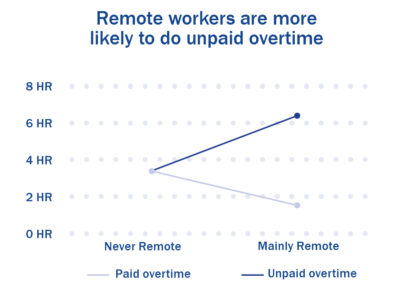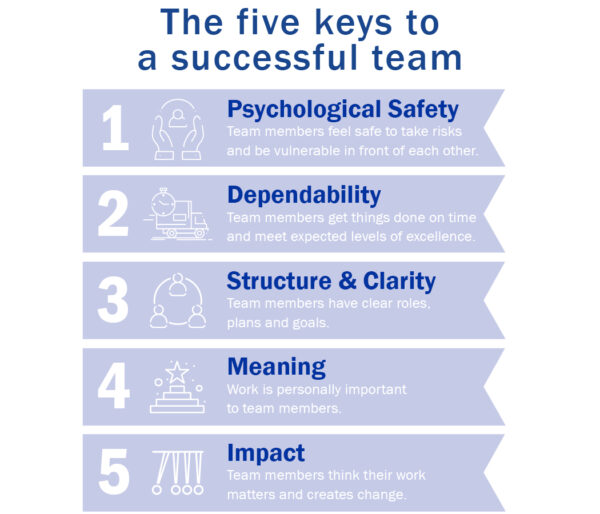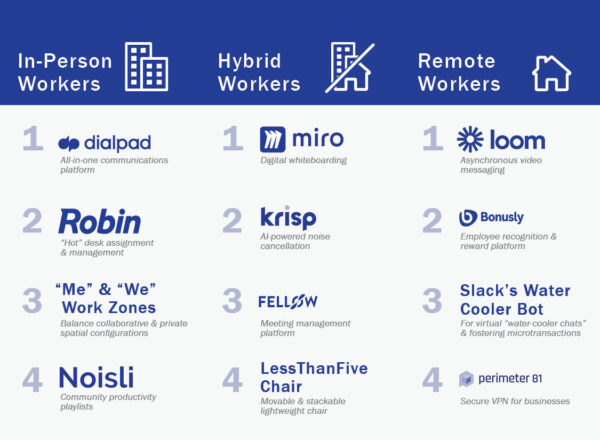How can we build equity in hybrid communities?
 As companies increasingly turn to hybrid work, how can they ensure that every employee—regardless of their physical location—has an equal seat at the table? While employees certainly benefit from the flexibility of hybrid work, which can offer the comfort and focus of working from home as well as the camaraderie and culture of working from an office, combining remote and in-office work brings a new set of organizational dynamics that can impede diversity, equity, and inclusion efforts. With hybrid work, organizational bias can show up as preferential treatment given to in-office vs. remote employees, such as promotions and pay increases. Strategies to address these biases will be critical for creating an inclusive, supportive hybrid work culture for everyone, regardless of location.
As companies increasingly turn to hybrid work, how can they ensure that every employee—regardless of their physical location—has an equal seat at the table? While employees certainly benefit from the flexibility of hybrid work, which can offer the comfort and focus of working from home as well as the camaraderie and culture of working from an office, combining remote and in-office work brings a new set of organizational dynamics that can impede diversity, equity, and inclusion efforts. With hybrid work, organizational bias can show up as preferential treatment given to in-office vs. remote employees, such as promotions and pay increases. Strategies to address these biases will be critical for creating an inclusive, supportive hybrid work culture for everyone, regardless of location.
 Effective teams are the cornerstone of great work. From better problem solving and increased innovation to happier team members and enhanced personal growth, successful teams enjoy wide-ranging personal and professional advantages. Hybrid work arrangements, which companies are increasingly adopting, can be seen as obstacles to building meaningful relationships. Yet building a strong team isn’t about location—it’s about cultural norms that can be promoted through strong leadership. Our hybrid working strategies will help employees feel included, safe, empowered, and connected.
Effective teams are the cornerstone of great work. From better problem solving and increased innovation to happier team members and enhanced personal growth, successful teams enjoy wide-ranging personal and professional advantages. Hybrid work arrangements, which companies are increasingly adopting, can be seen as obstacles to building meaningful relationships. Yet building a strong team isn’t about location—it’s about cultural norms that can be promoted through strong leadership. Our hybrid working strategies will help employees feel included, safe, empowered, and connected. We are exploring the tools, technologies, and strategies that can enhance distributed teamwork. As flexible work becomes the status quo, more than 70% of companies plan to invest in tools that bolster and sustain virtual collaboration. Automated and intelligent technologies have the potential to make virtual interactions more natural, workflows more conversational, and spaces more blended. Joining physical and digital spaces through technology has become imperative for companies looking to stay agile in the changing landscape.
We are exploring the tools, technologies, and strategies that can enhance distributed teamwork. As flexible work becomes the status quo, more than 70% of companies plan to invest in tools that bolster and sustain virtual collaboration. Automated and intelligent technologies have the potential to make virtual interactions more natural, workflows more conversational, and spaces more blended. Joining physical and digital spaces through technology has become imperative for companies looking to stay agile in the changing landscape.